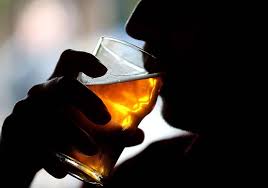Information on Cookies
To make the best use of our website, you'll need to make sure your web browser is set to accept cookies to ensure you receive the best experience.
For further information, please read our Cookies Policy.

Log In
It has been reported that alcohol sales in Scotland dropped in 2018 to the lowest level in any year since records began in the early 1990s.
According to the BBC report, Analysis by NHS Health Scotland found Scottish adults still bought more alcohol than people in England and Wales on average but the gap narrowed.
The authors of the report said it was not possible to quantify the impact but "early indicators were encouraging".
A minimum price per unit of alcohol was introduced on 1 May last year.
The 2019 MESAS (Monitoring and Evaluating Scotland's Alcohol Strategy) report said:
• The average Scottish adult bought 19 units of alcohol per week (The UK recommended limit was 14 units a week for men and women).
• The annual volume of "pure alcohol" in drinks sold in Scotland was 9.9 litres per adult, down about 3% from 10.2 litres in 2017.
• The volume of alcohol is 9% higher than in England and Wales (9.1 litres) - the smallest difference since 2003.
• Since 2010 the volume of pure alcohol sold per adult through supermarkets and off-licences has fallen by 9% in Scotland.
• It has risen by 3% in England and Wales over the same period.
Lucie Giles, public health intelligence adviser at NHS Health Scotland, said the minimum pricing law led to the biggest rise in the average price of alcohol for a decade and a "substantial" fall in the volume of alcohol sold at very low prices.
"From the data in this report it's not possible to quantify the full contribution of MUP (minimum unit pricing) on alcohol prices and sales, but these are encouraging early indicators."
However, the report also cautioned against early optimism is relation to the effects of the MUP on “alcohol related harm”.
Dr Ewan Forrest, a liver specialist at Glasgow Royal Infirmary, told BBC Scotland it was "probably too early to say" if there had been a reduction in alcohol harm.
"We are still seeing a lot of alcohol-related liver disease so I'm not thinking the measures taken have solved the problem but I'm hoping they have moved us in the right direction," he said.
He said: "By reducing the overall consumption of alcohol and pushing some people towards stopping alcohol I hope we can prevent people who have liver disease developing full-blown liver failure."
Source: BBC

